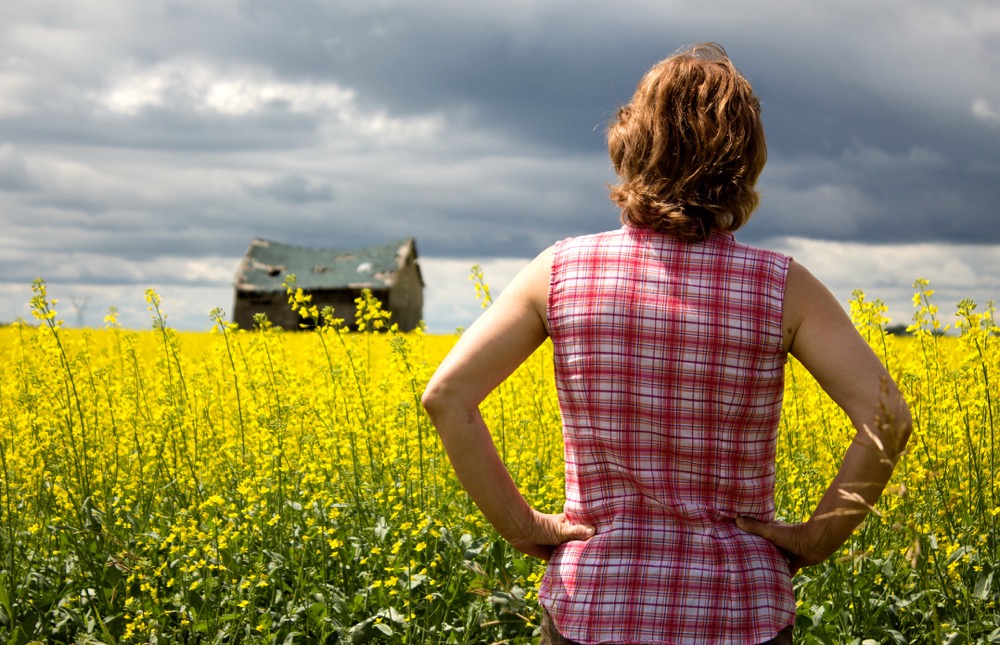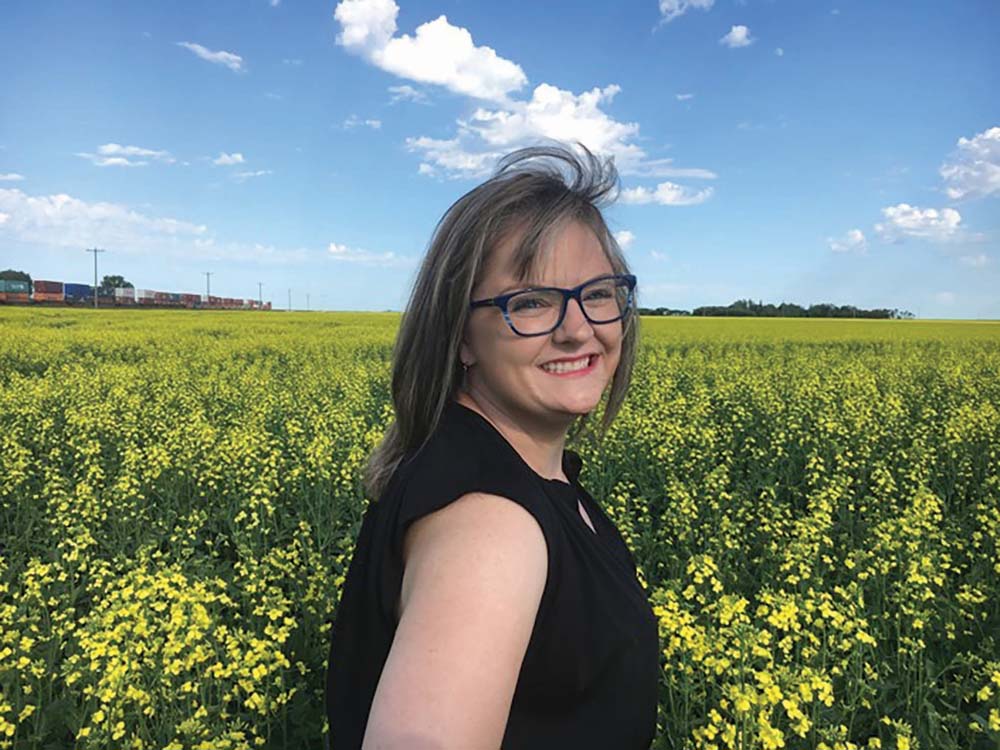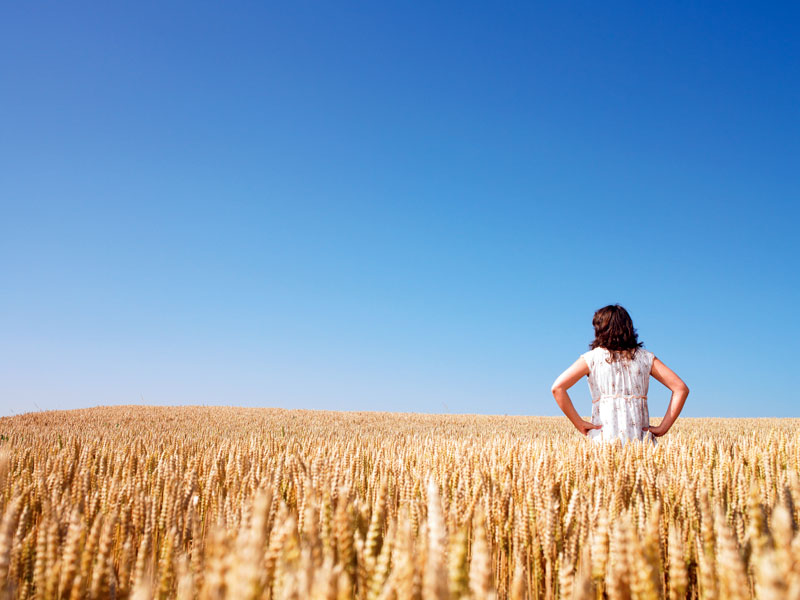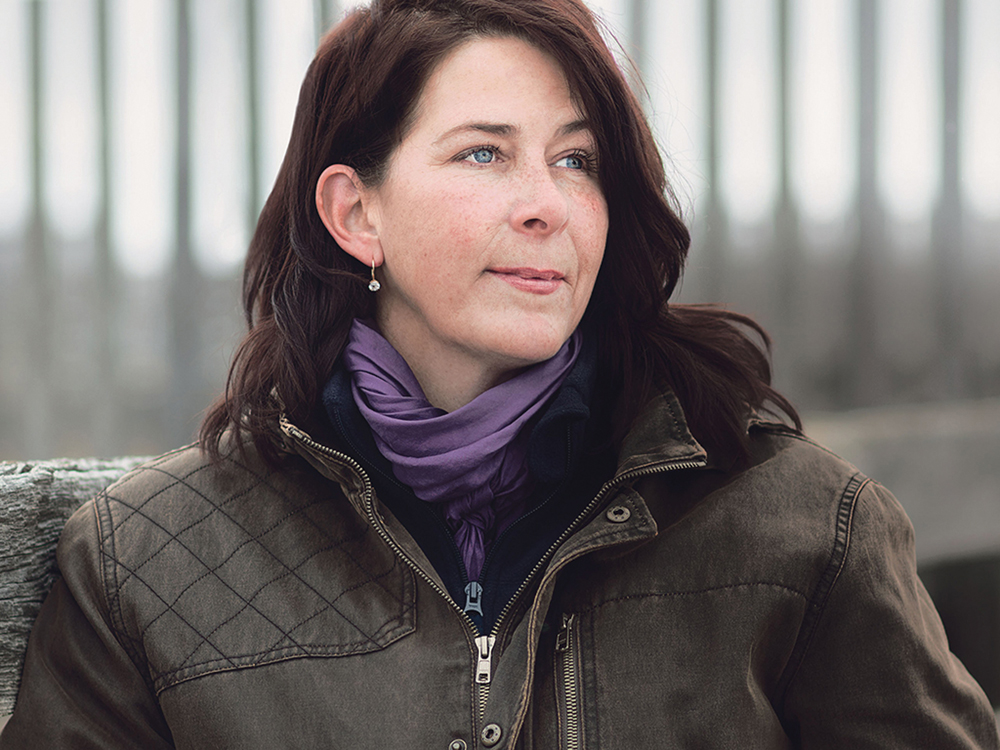Calgary recently hosted the annual Advancing Women in Agriculture Conference. Women in agriculture is an important topic, and one in which I am wholly unqualified to write about.
I would like to introduce you to Jamie Dyck. She and I got married in 2001, outside, in her parents’ backyard, after a three-day deluge. We are in this farming thing together. It is our operation. And this particular column is hers to write.
Women in agriculture
When Toban’s ancestors homesteaded what is now our farm, I don’t know for sure, but I don’t think the women were sitting around twiddling their thumbs and eating bonbons. More likely, they were out alongside their menfolk clearing brush, digging sod houses (and then, later, building wooden ones), milking cows, slaughtering pigs, plowing fields, seeding fields, harvesting and threshing grain, chopping wood, building fires as well as raising children, growing gardens, preparing food, doing laundry, cleaning the aforementioned sod house (however that was done) and trying to survive. The females were farmers, too. They had to be. And I’m sure, in some cases when the menfolk were sick, injured or non-existent, women did all of the work themselves.
Read Also

Avoid these thought traps when investing
Investing for Fun and Profit: Let’s review a list, by renowned fund manager Peter Lynch, of the most dangerous things that stock market investors can say to themselves, or to others.
And the female farmers of today are really no different, are they? An ever-increasing number of females identify as farmers. Not farmers’ wives.
They are making big farming decisions. They are purchasing and selling equipment. They are overseeing livestock operations. They are deciding on crop rotations, soil enhancements and chemical applications. They are waiting for the price of soybeans to go up just a little more before they sell. And they are bringing food to the field, moving equipment from one place to another, dropping off samples at the elevator, making sure the kids get to all of their activities even in the busy season of seeding and harvest and trying to make sure the household doesn’t fall apart.
Or they are working in jobs or careers off the farm to ensure that the farm can actually stay afloat.
I work full-time as a teacher, a few miles from the farm where we live. In a town that has agricultural roots and thrives in part due to the agribusiness, some of the people I work with have ties to farms.
One female teacher is on the combine on the evenings, weekends and holidays during harvest. Another drives the grain cart on her family farm when she’s got a spare moment. They probably don’t need to be doing these things and no one would fault them for taking a little break after a long day of motivating eight- year-olds. But they take on these tasks because they enjoy it, because they know how, because they want to help.
I’m not there yet. Although, I do see myself moving in that direction. As Toban becomes ever more involved in the practice of farming, I find myself taking more responsibility. Recently, I have taken over the books, not for the farm as a whole, but for the acres that we are in charge of. I’ve got a knack for that sort of stuff. And part of the reason we can take the giant risk of becoming farmers is because I work full-time in a job that has plenty of security and a pension attached.
At the beginning of our farm journey, it was my paycheque that bought the fuel and the groceries, paid the mortgage and kept clothes on our backs. And it may come to that again.
When we first moved to the farm, I learned to drive the ATV. Last summer, I learned to drive our small but powerful open-cab Massey Ferguson. I’ve raised chickens and ducks. I’ve done some market gardening. I will continue to take food to the fields and drop off pick-ups and/or farmers at various field locations.
Next year, maybe, I’ll try my hand at driving grain trucks. One day, I’ll drive the combine. I dream about how to integrate my love of teaching with giving students an opportunity to learn how to grow their own food, look after animals and be good stewards of the land.
And so I contribute, perhaps not as an equal partner. Not in the farming, anyway. Not yet. But I plan to get there.
So if you are a woman and you are reading this and you think, “My spouse is the farmer,” think again. Think about how your contribution to the farm makes a difference. You are making one — perhaps in a way that the outside world would label you a “farmer,” perhaps not. But that doesn’t mean you can’t call yourself one.














